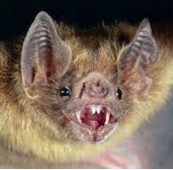
The rabies virus is typically detected in skunks and bats, less often in animals like coyotes, foxes and raccoons, with domestic animals being infrequently diagnosed. The rabies virus is transmitted through the saliva of a rapid animal that bites another animal or human, or when contagious saliva infects a break in the skin or mucous membranes (eyes, mouth, nose). If you are bitten by a wild animal, promptly wash the wound with soap and water. Immediately consult with your health care provider or Madera County Department of Public Health to determine if the wound requires further attention and whether preventive rabies treatment is required.
Rabies signs include abnormal animal behaviors such as:
- · Wild animals seeming unusually tame or unafraid of approaching people.
- · Nocturnal animals such as skunks, foxes, or bats that are active during the day.
- · Pets having difficulty walking, eating, or drinking, or whose personalities change.
- · Normally docile animals acting in an agitated or aggressive manner.
- · Bats that are unable to fly or have been caught by a domestic dog or cat
Reduce the risk of rabies by initially vaccinating and updating vaccinations for your pets. Unvaccinated dogs and cats exposed to a rabid animals should be euthanized immediately. Stay away from unfamiliar animals, and discourage wild animals near your home by keeping garbage in closed, secure containers and collection any uneaten pet food.
For information on animal rabies vaccinations, call Madera County Animal Services at (559) 675-7891 or visit https://www.maderacounty.com/government/animal-services














































